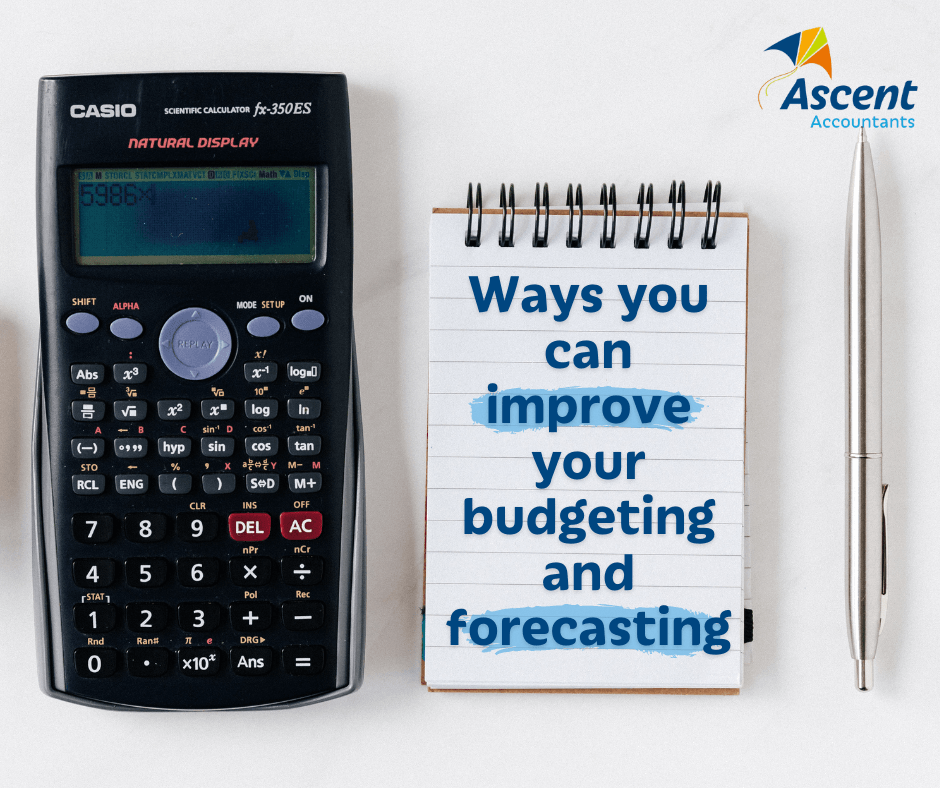Ways you can improve your budgeting and forecasting

Keep it flexible
Keeping your budgeting and forecasting flexible is extremely important as having it rigid can be very restricting. Things are constantly changing, and you need to be able to factor in these changes and how they will affect your business and budget. If you continue to make budget calls based on old data, you can end up making faulty and costly decisions for your business. Building flexibility into your budgeting and forecasting helps allow for more accuracy and an overall better result for your business.
Rolling forecasts and budgets
Instead of basing your forecasts and budgets on data that is out of date, you can update them to be based on present results. With this process, budget forecasting is done quarterly, rather than for the whole year. Rolling forecasts allow you to better align and adapt your budgets while also improving the accuracy of your future projections.
Budget to your plan
Setting your plan and then setting your budget around it is a great way to go. Budgeting to your plan means that your spending decisions will be based on actual and current revenue, rather than opportunities and extra revenue that such spending may or may not lead to. Instead of simply spending and then dealing with it later, budgeting to your plan forces you to deal with the potential impact expenditures will have on the business. Implementing this strategy of handling your budget can be really helpful in addressing opportunities that were not a part of the original budget.
Communication
Because forecasting and budgeting impacts all aspects of your business, you want to be sure to keep an open line of communication with all departments throughout the process. This helps minimise issues and ensures alignment between your business’s operational and organisational strategies.
Get everyone involved
Budgeting and forecasting is a team effort. Getting everyone involved means that all departments have their needs heard and understood. As well as your finance team, having people with direct knowledge and understanding of various departments can give you the data that you need to make accurate predictions and set more realistic budgets.
Be clear about your goals
The purpose of forecasting is to help predict your business’s financial future. Forecasting helps with making decisions and understanding the impact of these decisions before you actually implement them. If you do not set clear goals, then your ability to make accurate forecasts is diminished. You want your forecasts to be as factual based as possible, and to do this, you need a clear objective so that you are able to collect the right data.
Track everything
Everything needs to be accounted for while forecasting and budgeting, from potential buyouts of your competitors, to simply your office supplies. Be sure to not underestimate the importance of seemingly minor details and their ability to impact your business. Keep an eye out on market trends, client behaviours, and what your competitors are up to. All of these elements can be very useful and important data to consider when making you your business’s forecasts and budgets.
Profit and cash flows
It is a good idea to have profit targets and cashflow targets because the two bottom line measures are very different and they require different kinds of attention to control them. If you’re not keeping track of these two important metrics of your business, your budget can’t really be accurate and useful. To keep your company from missing out on its financial goals, set realistic targets for both your cash flow and profit flow.
Don’t rely on Excel
Don’t rely on Excel or other spreadsheet software for your budgets and forecasting. Planning software can really help you go a long way in making processes easier and less time-consuming. Cloud-based systems are now very popular and a standard for all areas of finance, not just bookkeeping services. When correctly implemented, they allow for more flexibility, as well as better security and cost savings compared to manual options. They allow you to generate predictions and budgets quickly and with minimal errors.
As a business owner, improving your budgeting and forecasting systems can make a massive and positive impact on your business. For more advice on how you can improve your own business finance budgeting and forecasting, get in contact today. Phone: 08 6336 6200 or email: info@ascentwa.com.au
Need help with your accounting?








